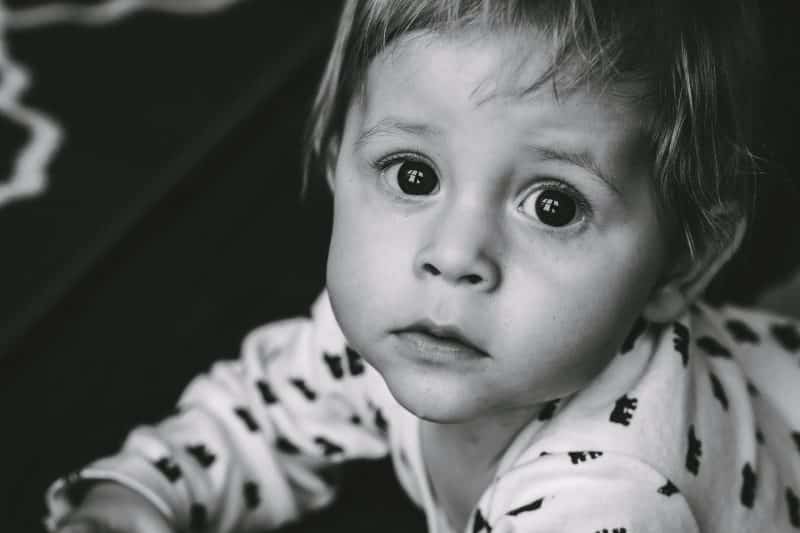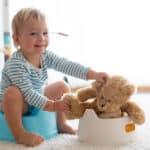Some people see no harm in giving a baby a sip of beer. Typically, this happens when the baby sees the parent doing it, and, in turn, wants some too. Instead of saying no, the baby drinks beer.
Other parents might give their child a sip of their beer when they’re teething as a form of pain relief (my mother used to rub Jack Daniels on my gums) or to help them sleep at night.
Some think it’s downright funny when a baby drinks beer. However, this isn’t good for your baby and can cause long term damage.
Will A Sip Of Alcohol Hurt My Baby?
According to this article posted by the Poison Control Center, yes it can. Alcohol is absorbed quickly into the body, and most children, especially babies, are too small to handle it.
It can also have disastrous effects, including seizures, coma, or even death. This has been seen repeatedly in small children that have gotten into their parent’s stash without their parents knowing it.
One significantly larger danger is that children might like the sip of alcohol after they drink it. Children are more likely to want more if they enjoy the taste, and more likely to get into their parent’s alcohol if left unsupervised.
If a baby drinks beer while they’re holding the can or cup, they might drink more than they can tolerate, which can lead to alcohol overdose.
Can Kids Have A Sip Of Beer?
No, kids must not have a sip of beer. When a baby drinks beer, it can have disastrous effects. While one time will not result in a full-blown alcoholic, it’s possible that they’re more likely to become alcoholics when they’re older.
View in gallery
According to studies explained in this article, children that have parents that are too lenient regarding alcohol are at the same risk level as those with parents that are too strict when it comes to the occasional beer.
It’s also important to remember that alcoholism does tend to run in families. If you or other family members were ever alcoholics, the odds are already against your little one.
Giving a child that already has this genetic predisposition a sip of beer can set them up for failure later on in life.
What To Do If A Child Accidentally Drinks Alcohol
Sometimes, even if you’re not one to let your child enjoy the occasional sip, your child might still get a drink of alcohol or two in their system.
This can happen if someone leaves a cup sitting on the table, the child gets into the liquor cabinet or even if they drink another product with alcohol in it, such as mouthwash.
To make sure that your little one is okay, it’s important to monitor them for signs of alcohol overdose, or signs that they have drunk too much alcohol.
These include, but aren’t limited to:
- Mental confusion
- Not being able to talk
- Poor coordination
- Not being able to walk
- Having difficulty standing
- Sudden drowsiness that is not otherwise explained (such as it being nap time)
- Vomiting
- Nausea
If you notice any of these signs or symptoms, take your child to the hospital immediately. Alcohol has a larger impact on babies than it does adults, and can easily be deadly.
If you have noticed that your child accidentally drank alcohol, but does not show the above symptoms, and are unsure of what to do, contact the Poison Control Center. They can provide expert guidance to help you make an informed decision.
Effects Of Alcohol On Child Development
View in gallery
Your child’s brain develops more in the first five years than any other time in their life. Even though development slows down, the brain continues to develop until a person is 24 years old.
Things like alcohol can have a devastating impact on a child’s development.
When your baby drinks beer, it acts as a depressant, just as it does with adults. However, children are smaller so the effects are more severe.
It causes the entire body to slow down, which is why we often see the slurred speech in people that have been drinking. It also causes the brain to slow down and for its development to either slowdown or cease.
Children that consume alcohol regularly will not develop at an appropriate speed due to this.
Learning Disabilities
Before early adulthood, the hippocampus is extremely sensitive to the effects of alcohol. The hippocampus is a part of the brain that is responsible for learning.
While other parts of the brain do play a role in learning, the hippocampus bears a large portion of this weight. It helps with problem-solving, and memory function.
When children have a significantly smaller hippocampus, it’ll present itself via learning disabilities.
Smaller Prefrontal Lobe
The more alcohol is consumed, the smaller the prefrontal lobe is. This is the part of the brain that controls judgment and decision making. It also plays a large part in impulse control.
As the prefrontal lobe gets smaller, it can lead to children making risky decisions, and present itself as symptoms of ADHD.
Children that are allowed to drink alcohol on a regular basis can also experience delays in fine motor skills, social skills, and other critical areas of development. This is why it’s best to avoid this habit altogether and not start it in the first place.
Never Give Alcohol To A Child To Sleep
Some parents appreciate how alcohol helps them put their baby to sleep without the usual crying or fussing. However, this can be very dangerous for children of all ages.
View in gallery
If your baby drinks beer right before they go to bed, you won’t know if they’re displaying signs of alcohol overdose. If your little one slips into a coma, this could be mistaken for them being asleep.
Due to the fatal side effects of alcohol on children, parents are encouraged to seek other ways to help their children sleep better. Some helpful tips to get your little one to fall asleep faster include:
- Establishing a relaxing bedtime routine
- Play hard during the day
- Make sure they are not hungry
- Play soothing music
- Tissue paper works for this dad
It’s important to try different methods and then use what works for your baby. Remember, one method that works for other parents might not work for your baby.
Even if your baby drinks beer occasionally, it can still cause developmental delays and put your little one in danger. What starts out as one small sip could easily turn into your baby chasing down people that are drinking because they want another one.
Avoid this practice in the beginning to prevent future problems, and possibly save your baby’s life.






